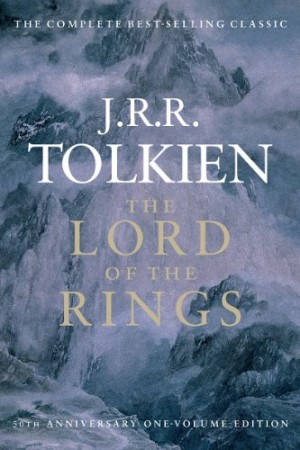
Warm Bodies, based on a novel by Isaac Marion that I haven’t read, is a modern take on Romeo and Juliet, only this time Juliet meets and falls in love with Romeo after he’s already dead. It is a tale about the power of love to induce positive change and tear down walls even in trying times — of learning to see others as individuals, looking past their superficial group characteristics, and recognizing, even accepting, differences. But all is not moonlight and roses. Life, if one can call it that, among the living and the dead is hard; and even in the end, one cannot eschew entirely a hardnosed realism, as there are some too far gone even for love to heal.
Julie, played by Aussie Teresa Palmer, is the daughter of the military leader (John Malkovich) of an authoritarian, walled compound that houses perhaps the last remaining settlement of living human beings. R, played by Nicholas Hoult, is a zombie who spends his days wandering aimlessly around an airport and occasionally feasting on the flesh of the living. He’s a little off as far as zombies go, in ways you’ll have to see for yourself.
The two meet one fateful day when Julie is out on a pharma-salvage mission with a group of her peers and R is leading a pack of zombies in a hunt for their next meal. Can these two star-crossed lovers make it work? Will the living give R a chance before putting a bullet in his brain? Will R’s fellow undead refrain from eating Julie’s?
[continue reading…]
Help Promote Prometheus Unbound by Sharing this Post

In episode two of the Prometheus Unbound Podcast, Matthew and I (Geoffrey) discuss libertarian speculative fiction and introduce the Book of the Month, Today’s Tomorrows Writing Prompt, and Fiction Forecasts segments of the show.
We break the ice with some brief chit-chat about what we’ve been reading before seguing into our discussion of libertarian spec fic. The Book of the Month is Coyote by Allen Steele. In Today’s Tomorrows Writing Prompt, we turn a speculative eye on the very real possibility of an intellectual-property dystopia. And in Fiction Forecasts, we talk about upcoming (at the time of recording) television shows, movies, and books.
What We’ve Been Reading
Libertarian Speculative Fiction
We covered a lot of ground in our discussion of libertarian spec fic, but we really only scratched the surface of this broad, deep, and no doubt controversial topic. I’m sure we’ll be revisiting many of the stories and issues we covered, and many more besides, in future episodes. So subscribe and stay tuned!
Here’s a brief rundown of some of the things we covered: what qualifies a work of fiction as libertarian; libertarian themes in science fiction and fantasy; why they seem to be more common in science fiction and why libertarians seem to favor this genre; our favorite works of libertarian spec fic; the Prometheus Awards; and probably more that I’m forgetting as I write this.
[continue reading…]
Help Promote Prometheus Unbound by Sharing this Post


It seems that every classic is to have an entourage. The loneliness of such films as Alien, Star Wars, and King Kong is too much to bear for the hearts of movie execs, so companions are made for them. Sequels, prequels, remakes, and spinoffs are what Hollywood does most, though not necessarily best. At times, this proclivity has born sweet fruit. Though sequels are rarely as good as the original, if the original was any good at all, there have been some smashing successes. Even remakes have some achievements to be noted. I am, however, unaware of a prequel or a spinoff whose makers could hold their heads high and proud once their creation hit the silver screen. Oz the Great and Powerful, a prequel to the 1939 classic The Wizard of Oz, is unable to break out of this trend and be the first.
Set some years before the events of Victor Fleming’s work, it tells the tale of the wizard himself, a travelling magician from Kansas making a meager, day-to-day living. A magician is a trickster, of sorts, and Oscar Diggs (James Franco) has a character well suited to it. Though one gets the sense that at his core he is not entirely amoral, he lies to friend and stranger alike. He lusts after money and women, whom he tricks for his own benefit.
It is this very duplicity in his nature that gets him running from trouble and sets him on course for Oz. After flirting with the wife of a circus strongman, he escapes the enraged husband in a hot air balloon just as a tornado begins to ravage the landscape. As happened in the original film to Dorothy, the tornado transports him to the magical Land of Oz. There, he meets Theodora, a witch played by Mila Kunis.
[continue reading…]
Help Promote Prometheus Unbound by Sharing this Post

Matthew and I recorded a brief promotional spot for the Prometheus Unbound Podcast. It includes part of the intro and outro that you will soon become familiar with as well as information about what listeners can expect from the podcast.
Join us as we
- interview your favorite authors, editors, and libertarian scholars;
- and discuss science fiction and fantasy in books, movies, and television.
You’ll enjoy segments like
- Book of the Month, in which we recommend a great book that ties in with that episode’s theme;
- Today’s Tomorrows Writing Prompt, where we take a current trend in society, explain its causes, and extrapolate how it will play out 10, 50, 100 years into the future;
- and Fiction Forecasts, in which we talk about upcoming books, movies, and tv shows, and predict our reactions.
As well as
- audio reviews;
- tips on writing, marketing. publishing, tools of the trade;
- and listener feedback that we read or play and respond to on the show.
[continue reading…]
Help Promote Prometheus Unbound by Sharing this Post


A director returns, after several years and more than one lackluster attempt with other kinds of movies, to a genre he redefined. He had some little known but modestly successful works before his big breakthrough, but since then he just has not been the same man who gave us such an epic, fantastic spectacle full of industry-defining special effects, wonderful music, thrilling action, and, above all, a new world to explore with characters we wanted to accompany. Special effects have come a ways since his magnum opus was crafted, and if used correctly they have the potential to enhance the visual experience even more than before. What could possibly go wrong?
Peter Jackson’s latest project is out in theaters. I wish I could say it was called The Hobbit, but honesty compels me to report that the name is actually The Hobbit: An Unexpected Journey. The reason for the alteration is that The Hobbit will be brought to us not as a short adventure thrill ride, in keeping with the pace and feel of the source material, but rather will be extended into a movie trilogy that, when finished, will outlast a typical BBC miniseries. The motive behind this sort of reverse editing, whereby Tolkien’s notes were raided for things to stuff into the story and plump it up, is Mr. Jackson’s belief that we are stupid enough to triple his box office take if he triples the number of movies to be made from the story. He is probably right. I know I bought my ticket.
Even with his triumphs Jackson had a tendency to let a project get bloated. The best example, I believe, is the sudden barrage of scenes that hit us in The Two Towers right as we should be, could be, would be cruising toward the third act if a drawn-out and apocryphal love story were not fed to us by way of flashbacks, many in a languid, dreamy style that makes one wonder if one has just witnessed something shot wholly in slow motion. When Jackson had over 1,000 pages of material to convert to nine hours of footage this was an annoyance. With The Hobbit, he has fewer than 300 pages to make into nine hours and the filler has now surpassed the beef in the hotdog.
[continue reading…]
Help Promote Prometheus Unbound by Sharing this Post

In this episode of the Libertarian Tradition podcast series, part of the Mises Institute’s online media library, Jeff Riggenbach makes the case that the author of The Lord of the Rings, J.R.R. Tolkien, can be counted as a libertarian.
Editor’s Note: A transcript is unavailable. This early episode was never turned into a Mises Daily article like most of the others.
Here is a brief summary, however:
Riggenbach argues that The Lord of the Rings is “both an allegory of the inevitable fate that waits for all attempts to defeat evil power by power and an allegory of power exerted for domination.” The story is a dramatization of Lord Acton’s famous dictum that “power tends to corrupt, and absolute power corrupts absolutely.”
After a delving deeper into Lord Acton and his dictum, Riggenbach reads a couple of passages from one of Tolkien’s letters to his son, Christopher, that were also quoted by Alberto Mingardi and Carlo Stagnaro in their Mises Daily article, “Tolkien v. Power” (February 21, 2002). I quote the passages below for your convenience, but the whole article is well worth reading:
[continue reading…]
Help Promote Prometheus Unbound by Sharing this Post

I listen to a number of podcasts on books and writing in the science fiction and fantasy genre. I find them interesting and valuable as a fan, as the editor of Prometheus Unbound, and as an aspiring author myself. I think you will as well, so I’ve created a curated list of my favorites and what I’m listening to now. Do you listen to any of these? Are there any I haven’t listed that you would recommend? Let us know in the comments.
General SF&F Book Podcasts
These are mostly general science fiction and fantasy podcasts about books, although movies and tv shows do come up on some of them as well. If you’re interested in the craft and business of writing, it would be worthwhile to subscribe to these not only to keep up with the state of the field but also because they often feature authors, editors, publishers, and agents as interviewees or guests.
The SF Signal Podcast — The Hugo-nominated podcast of the indispensable Hugo-winning SF Signal website. Hosted by Patrick Hester. The schedule is one interview episode and one discussion episode per week. The podcast features a wide range of interviewees, guests, and panelists, including a core group of regulars, from the science fiction, fantasy, and horror community. I haven’t listened to the new, separate Crossing the Gulf podcast hosted by Karen Burnham (a NASA engineer) and Karen Lord yet.
Adventures in Scifi Publishing — Hosted by Shaun Farrell, Moses Siregar (The Black God’s War), and Brent Bowen. A long-running podcast featuring discussion and interviews with the biggest and hottest names in the genre community as well as newer authors. The experienced hosts are self-published or aspiring authors themselves. Update: Founder Shaun Farrell has had to step down from hosting AISFP, but he relinquished the reins to new host Tim Ward so the show will go on.
The Coode Street Podcast — A rather informal and, as they say, rambly conversation between editor Jonathan Strahan (Life on Mars) and academic and reviewer Gary K. Wolfe (Evaporating Genres). There is the occasional guest, but mostly it’s just the two hosts. You can learn a lot about the current state of the genre, and especially its rich history, from these widely read veterans.
[continue reading…]
Help Promote Prometheus Unbound by Sharing this Post














